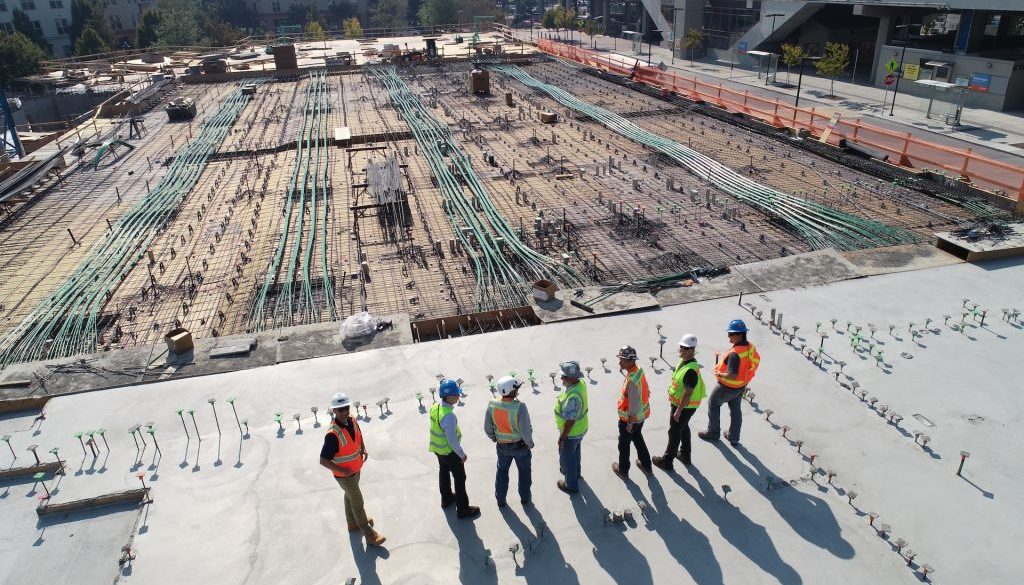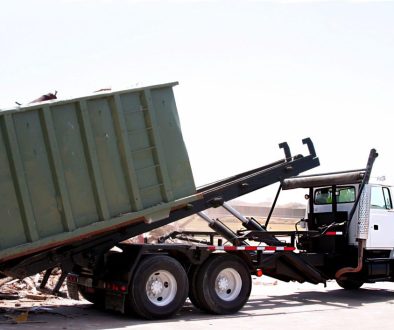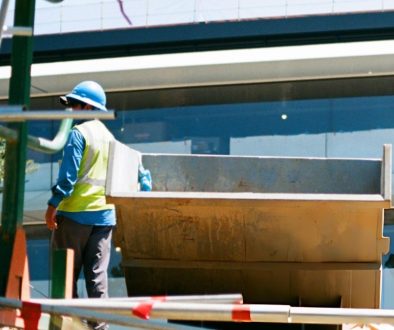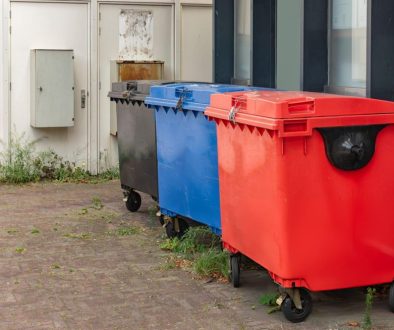Construction projects are notorious for generating substantial waste, including materials and resources, often resulting in environmental and financial concerns. As a result, there is a growing emphasis on adopting waste reduction strategies to minimise the environmental impact of construction projects and to maximise cost-effectiveness.
Reducing waste generation not only benefits the environment and your project’s bottom line but also helps to optimise the use of skip hire services, ensuring efficient and cost-effective waste management. This blog post will explore various methods for reducing waste generation during construction projects, including planning and design strategies, on-site waste management practices, and responsible procurement of materials.
One of the primary ways to implement waste reduction is through effective planning and design. By considering waste minimisation during the early stages of a construction project and adopting sustainable design principles, it is possible to significantly reduce waste generation and potential disposal costs. Such strategies may include the selection of sustainable and recyclable materials, the adoption of modular or prefabricated construction techniques, and the optimisation of building design to reduce material usage and excess waste.
On-site waste management practices also play a vital role in waste reduction efforts. Construction site personnel should be aware of waste management protocols and be adequately trained to identify, segregate, and handle waste materials. By segregating and recycling waste materials where possible, resources can be re-used and diverted from landfill disposal, creating a sustainable and environmentally responsible construction process.
Another important aspect of waste reduction is responsible procurement. Construction projects can significantly minimise waste generation by adopting environmentally conscious procurement practices, such as sourcing materials from suppliers that prioritise waste reduction and recycling. This involves evaluating suppliers based on their environmental performance, sustainability certifications, and waste management policies.
Employing a proactive and comprehensive waste reduction strategy during construction projects can provide numerous benefits, including cost savings, enhanced sustainability, and a reduced reliance on landfill. Through a combination of effective planning, design, on-site management, and responsible procurement, it is possible to minimise waste generation and optimise the use of skip hire services for efficient and responsible waste management.
How to Reduce Waste Generation during Construction Projects
Effective Planning and Sustainable Design
Incorporating waste reduction strategies during the planning and design phase of a construction project can have a significant impact on waste generation. Some effective planning and design methods include:
- Material Efficiency: Selecting construction materials that are sustainable and recyclable can help reduce waste. Consider materials with low environmental impacts or those with a high recycled content, which can be repurposed at the end of their lifecycle.
- Modular or Prefabricated Construction: Adopting modular and prefabricated construction techniques can significantly minimise waste by producing precision-manufactured building components off-site. This approach also helps conserve resources and minimise construction time, contributing to overall project efficiency.
- Structural Optimisation: Optimising the building design to maximise the efficient use of materials and minimise excess waste is critical in waste reduction efforts. This may include using optimised structural components, designing for material efficiency, or considering future building adaptation to reduce the need for demolition and subsequent waste generation.
On-Site Waste Management Practices
Effective on-site waste management plays a crucial role in waste reduction efforts. Implementing the following practices can contribute to minimising waste generation on construction sites:
- Waste Segregation: Clear and well-labelled waste segregation areas should be established on construction sites to facilitate easy sorting and recycling of materials. By segregating waste materials, resources can be reused or recycled, reducing the volume of waste sent to landfill.
- Staff Training: Ensuring that all staff members working on the construction site are familiar with waste management protocols and trained to identify, segregate, and handle waste materials is essential for maintaining on-site waste reduction practices.
- Waste Audits: Periodically conducting waste audits can help identify areas for improvement in waste management practices. By analysing waste generation patterns and monitoring waste reduction efforts, waste-related costs can be more effectively controlled, and waste reduction targets can be met.
Responsible Procurement of Materials
Adopting environmentally conscious procurement practices can significantly minimise waste generation by sourcing materials that prioritise waste reduction and recycling. To implement responsible procurement:
- Evaluate Suppliers: Assess suppliers based on their environmental performance, waste reduction initiatives, and sustainability certifications. By selecting suppliers with a strong environmental ethos, construction projects can support industry-wide waste reduction efforts.
- Use Certified Materials: Where possible, use materials with sustainability certifications or ratings, such as those endorsed by the Forest Stewardship Council (FSC) for responsibly sourced timber products. Certified materials ensure that environmental impacts and waste generation are minimised across the supply chain.
- Adopt Just-in-Time Delivery: Coordinating material deliveries to match the construction timeline can help reduce waste by minimising the need for on-site storage, preventing material damage, and ensuring that materials are used efficiently.
Maximising the Use of Skip Hire Services
Hiring a professional skip hire service, such as Enviro Skip Hire, can play a vital role in reducing waste generation during construction projects by providing efficient waste management solutions. To maximise the benefits of skip hire services:
- Choose the Right Skip Size: Select a skip size that suits your project’s waste generation requirements. This ensures that excess waste container capacity does not encourage over-production of waste while also avoiding multiple collections and associated costs.
- Collaborate with Skip Hire Providers: Work closely with your chosen skip hire provider to develop an effective waste management plan and obtain expert guidance on reducing waste generation. This can help you adhere to regulations and remain environmentally responsible.
- Utilise Recycling Services: Many skip hire providers offer recycling services as part of their waste management solutions. Utilise these services to recycle and repurpose materials, diverting waste from landfill disposal and promoting a circular economy within the construction industry.
Conclusion
Reducing waste generation during construction projects is an essential component of maintaining sustainable, environmentally responsible operations while also contributing to cost-effectiveness. Through a combination of effective planning and sustainable design, on-site waste management practices, responsible procurement, and the strategic use of skip hire services, construction companies can significantly minimise waste generation and the associated environmental impacts.
By embracing waste reduction strategies and fostering a culture of sustainability within the construction industry, businesses can benefit from increased efficiency, reduced costs, and a positive reputation as environmental stewards.




